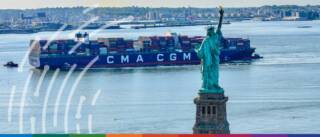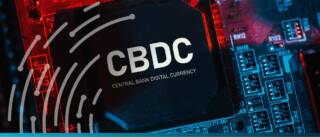Discover how ISO 20022 can reshape the world of trade finance and what banks need to do to prepare for a global adoption.
Read the latest edition of Trade Finance Talks, “Commodities & The Economy: Is 2024 the year the industry pops?”
40% of Britons want to exercise more in 2024, according to Forbes. For many, this means going to the gym, which has almost as many acronyms as trade and supply chain finance.
As Contour, the last-standing global trade finance project built on DLT moves to its next stage, we should be honest about what this speed bump means for trade, trade finance, and blockchain.
According to Ravi Menon, the Monetary Authority of Singapore’s (MAS) managing director, Singapore is set to trial the live issue and utilisation of wholesale central bank digital currencies (CBDCs) in… read more →
The ISO 20022 format is a set of data and messaging that is integrated into an instant payment or any other cross-border transaction.
Today, the International Trade and Forfaiting Association (ITFA) has released an addendum to its Digital Negotiable Instruments (DNI) Handbook. This update follows the enactment of the UK Electronic Trade Documents… read more →
At Sibos, the topic of trade digitalisation was buzzing with discussion. However, in order for the industry to make significant progress, it’s essential for all stakeholders to align their efforts. Pamela Mar, Managing Director of ICC Digital Standards Initiative (DSI), is at the forefront of addressing this issue.
Bank of America advances digital transformation in trade finance with CashPro Supply Chain Solutions
Bank of America is embarking on a multi-year initiative to digitise trade finance through its new platform, CashPro Supply Chain Solutions. Aimed at optimising working capital and streamlining processes, the… read more →
With the passing of the UK’s Electronic Trade Documents Act (ETDA), the digital trade world is changing. While this is welcomed news for the entire industry, it also means that new partnerships and innovations need to come to fruition.
For ages, correspondent banking has played a vital role in the global payments system. Through correspondent banking relationships, banks gain access to a diverse range of financial products across various jurisdictions enabling them to offer cross-border payment solutions and services to their customers.
In an era marked by technological advancement and rapid digitisation, the landscape of financial transactions has undergone a transformative shift. Traditional modes of payment, such as checks and physical currency, have given way to the convenience and efficiency of digital payments.
International Lawyers and Economists for Development (ILaED) is a non-government organisation focusing on the economic development of women and girls. By encouraging entrepreneurial skills, it helps them engage in both local and international markets.
Trade finance plays a vital role in global economic activities, facilitating the movement of goods and services across borders.
 Australia
Australia Hong Kong
Hong Kong Japan
Japan Singapore
Singapore United Arab Emirates
United Arab Emirates United States
United States France
France Germany
Germany Ireland
Ireland Netherlands
Netherlands United Kingdom
United Kingdom















